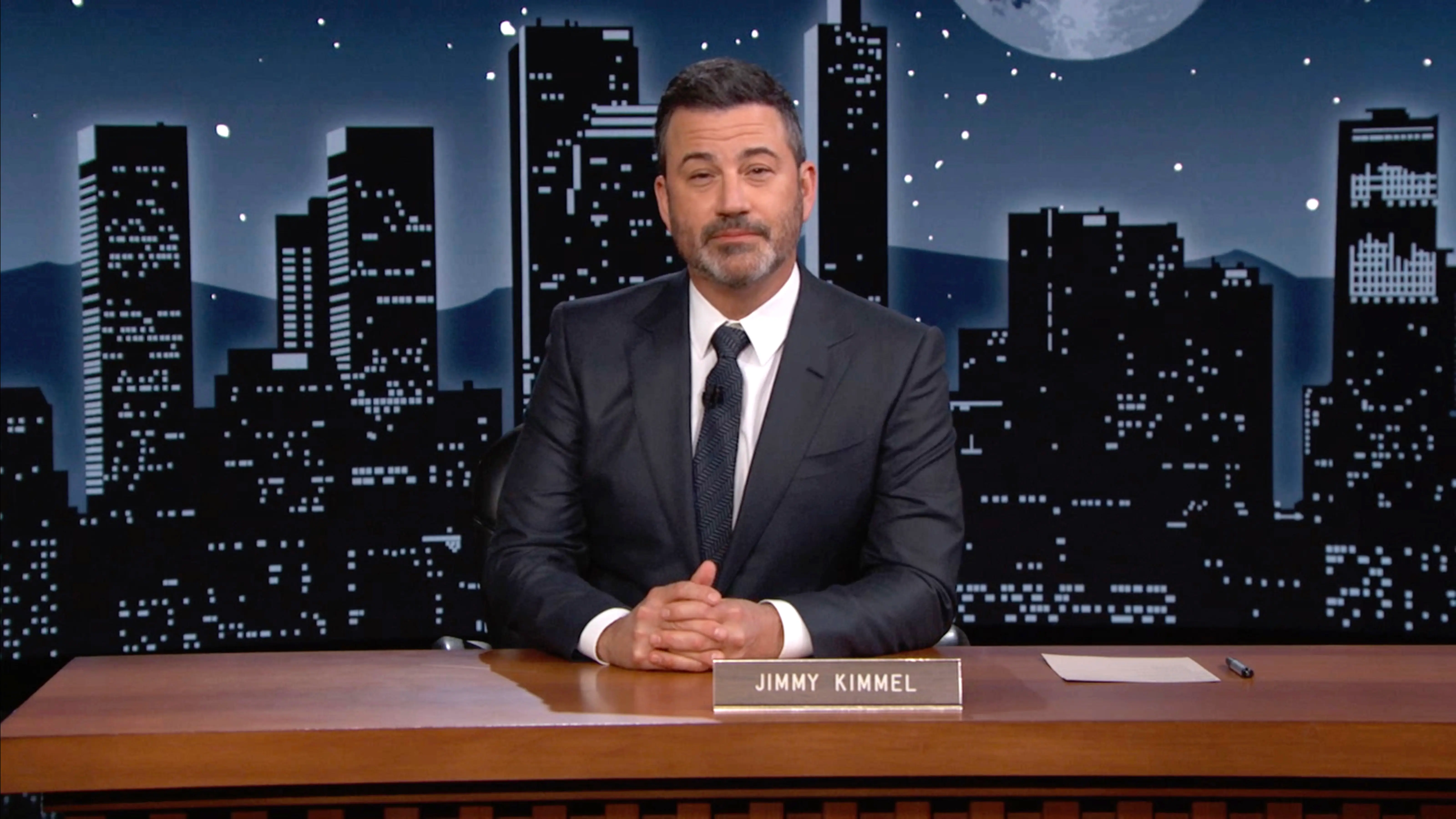After asking Jimmy Kimmel for an apology, Sinclair now refuses to air his return to ABC
-
 UNSPECIFIED - NOVEMBER 17: In this screengrab, Jimmy Kimmel speaks at the 2021 Media Access Awards Presented By Easterseals on November 17, 2021. (Photo by Media Access Awards Presented By Easterseals/Getty Images for Easterseals)
UNSPECIFIED - NOVEMBER 17: In this screengrab, Jimmy Kimmel speaks at the 2021 Media Access Awards Presented By Easterseals on November 17, 2021. (Photo by Media Access Awards Presented By Easterseals/Getty Images for Easterseals)The debate around late-night television has rarely been as intense as it has over the past week. In recent weeks, Jimmy Kimmel suddenly found himself at the center of a nationwide storm when his program was suspended following controversial remarks in his monologue about conservative activist Charlie Kirk.
Disney, ABC’s parent company, initially pulled the plug on new episodes, calling Kimmel’s comments “ill-timed and insensitive.” But after what the network described as “thoughtful conversations,” executives approved his return to the late-night slot.
The comeback, however, has not been smooth. While ABC announced that the show would resume airing, one of its largest affiliates, Sinclair Broadcast Group, made clear it would not reinstate the program for its viewers. Instead, Sinclair will fill the late-night slot with local news programming while discussions with ABC continue.
Sinclair declines to bring Jimmy Kimmel back on air
Sinclair confirmed that beginning Tuesday, its ABC stations will continue preempting Jimmy Kimmel Live despite Disney’s green light for the program’s return. The comments from the spokesperson indicated that discussions are ongoing, but there is no particular indication of when things will settle.
“Discussions with ABC are ongoing as we evaluate the show’s potential return," the spokesperson said (via The Daily Star).
The company had previously demanded an apology from Jimmy Kimmel and a donation to Charlie Kirk’s nonprofit before considering lifting its suspension. Although Disney never announced whether such conditions were met, Sinclair’s refusal suggests the standoff is far from resolved.
For now, viewers who receive broadcasts from the Sinclair Network will not be able to watch Kimmel’s much-discussed comeback episode, which was expected to feature actor Glen Powell as a guest.
The move underscores the power that local station groups wield over national programming. Even though ABC controls the show at the network level, affiliate owners like Sinclair ultimately decide what goes on air in their regions. As things stand between the two, some viewers will watch Jimmy Kimmel return as scheduled, while others will see local news instead during the scheduled time.
How the controversy escalated and where it stands
The controversy began when, during his monologue on the episode that aired on September 15, Jimmy Kimmel criticized MAGA supporters for how they responded to Charlie Kirk’s killing. As per Kimmel’s monologue, he highlighted how the shooter was a MAGA supporter too and that many are constantly trying to categorize him as anything other than that. He joked about Donald Trump’s reaction to the news, who swiftly moved on from expressing his empathy over the situation to the progress of the Ballroom at the White House.
Kimmel compared his reaction to that of a four-year-old mourning the death of his goldfish, drawing laughter in the studio but outrage outside of it. Soon after, FCC commissioner Brendan Carr, a Trump ally, suggested ABC should face penalties for airing the remarks.
Within hours, Sinclair and Nexstar — two of the country’s biggest TV station groups — announced they would stop airing Jimmy Kimmel Live. Following this decision, Disney also suspended the show entirely, claiming it wanted to avoid escalating tension at a difficult moment. Many saw the decision as an act of unnecessary censorship, and there was also a growing worry about a dangerous backlash if broadcasters could be punished for political satire.
In the aftermath of the suspension, over 400 actors and creators signed an open letter supporting Jimmy Kimmel. Other American TV late-night hosts such as Stephen Colbert and Jon Stewart also showcased their support and voiced their concern that the suspension was rather a free-speech issue growing within the country. Although Disney ultimately reversed course and restored the show after suffering a loss of billions of dollars, their affiliate group, Sinclair, had already decided that they would not budge.
Today, the future of Jimmy Kimmel Live remains uncertain in many parts of the U.S. Disney executives have signaled confidence in moving forward, but affiliates still hold the cards. Nexstar has yet to confirm whether it will resume carrying the show, and Sinclair has clearly chosen to resist.
Until a compromise is reached, millions of viewers will be left without access to one of ABC’s flagship programs, reminding audiences that the reach of late-night television often depends less on what networks decide and more on how affiliates choose to act in a divided media landscape.
TOPICS: Jimmy Kimmel
- Is Jimmy Kimmel leaving late night? ABC's favorite talk show host has some plans up his sleeve
- What sparked Trump’s latest comments on Jimmy Kimmel at the Kennedy Center event?
- Jimmy Kimmel Selected for Rare International Cinematographers Guild President’s Award
- Why Is Trump Accusing Jimmy Kimmel of "No Talent" and "Biased Coverage"?